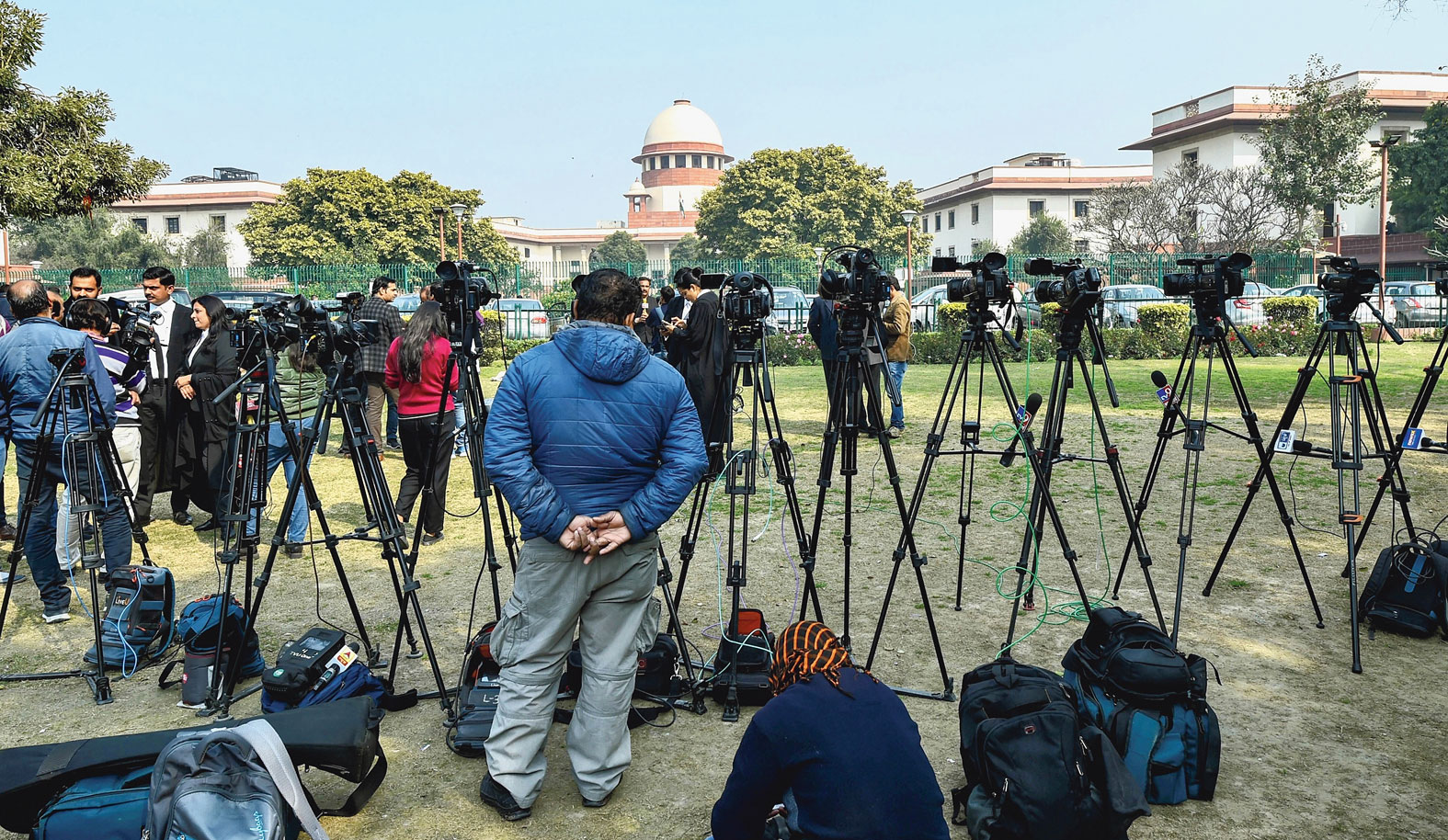Protesters at the Shaheen Bagh vigil are confused about the course of action and are awaiting possible clarity at the next hearing after the Supreme Court gave the Centre, Delhi police and the state government a week to reply to a plea against the road blockade.
One of the women leading the vigil against the new citizenship regime, Shaheen Kausar, told The Telegraph: “As the court has not ordered us to vacate, we will wait for the hearing on February 17. We do not see the court’s observations as a setback, but we are saddened by continuous police atrocities at every protest against the Citizenship (Amendment) Act.
“We sympathise with those facing inconvenience during our protest, but we are forced to sit here as the government does not want to address the reasons why we oppose this law. However, we will obey whatever the court says.”
A source among the organisers said they had come to an agreement to open up one carriageway of GD Birla Marg — which connects south Delhi with Noida — on January 30, but did not go through with it after public outrage over the shooting of a Jamia Millia Islamia student at an anti-CAA rally by a zealot.
After the court’s observations, voices within the community to shift or end the sit-in, or replace it with other forms of protest, have grown stronger.
Mohammed Asif, who runs the Fatima Sheikh-Savitri Phule Library at a bus stop near the protest site, said: “We are also members of the public. The reason for this protest is that people are tense over losing their citizenship over the lack of documents. It is not only our constitutional right but also our duty to protest to protect the Constitution. The real inconvenience will be felt when the Constitution ceases to exist.”











